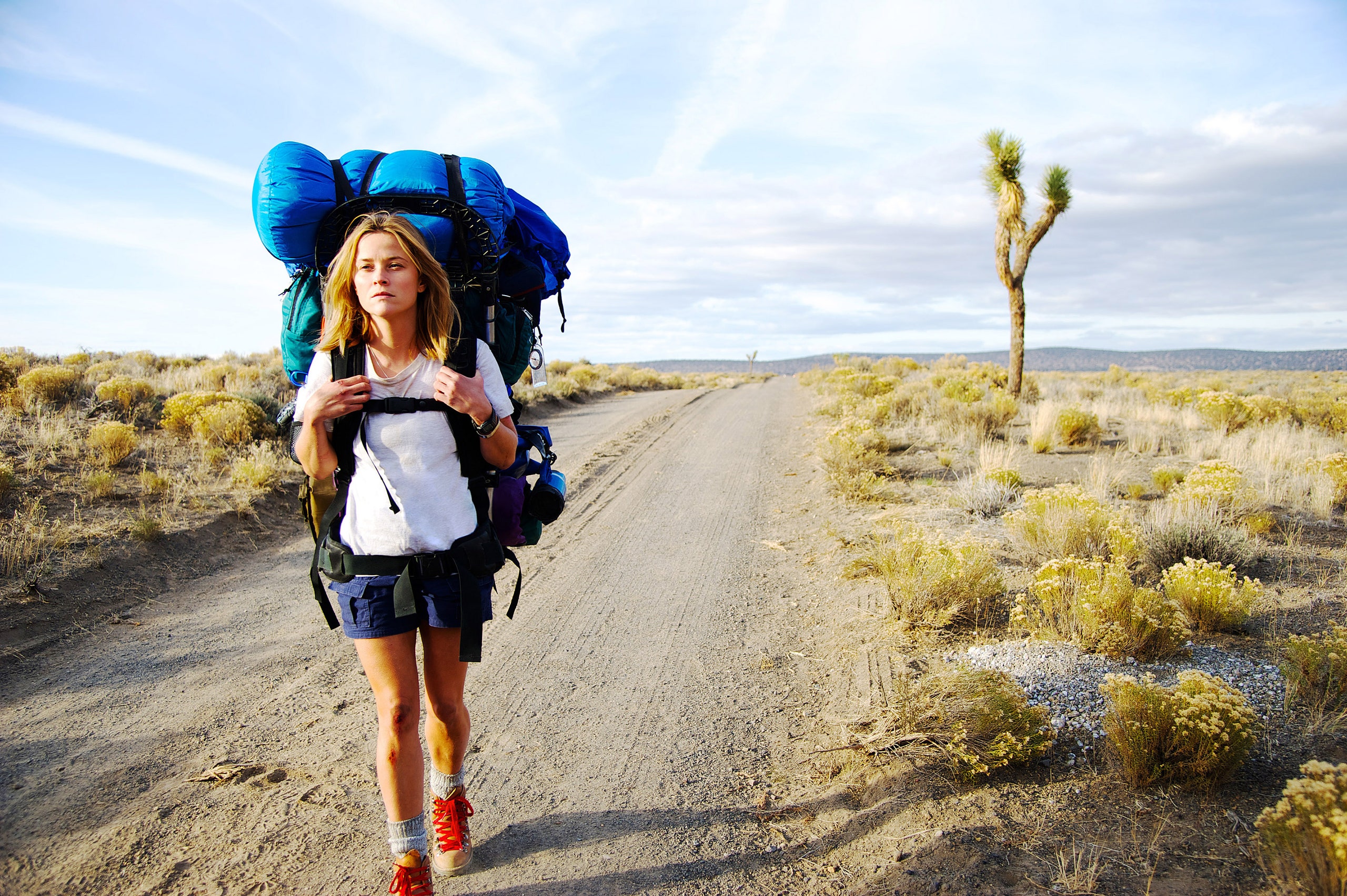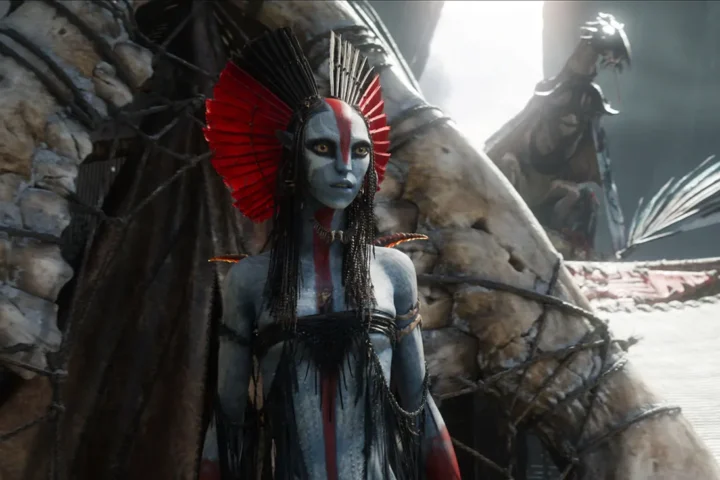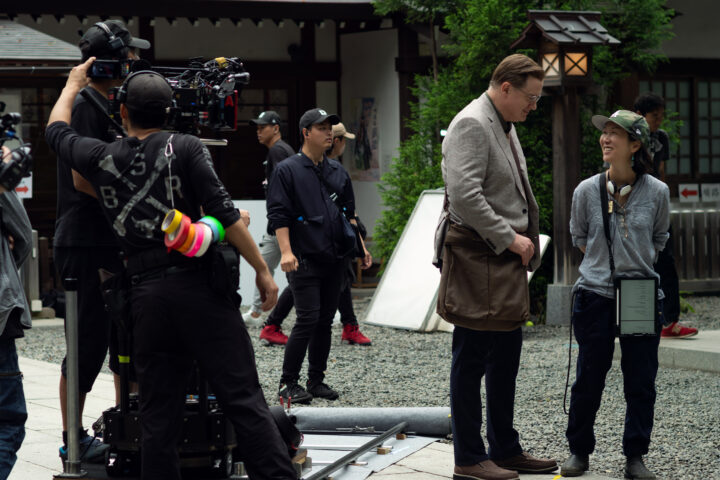What do you do when you’re mired in a painful past and your identity is so shaped by regret and emptiness that you no longer recognize yourself? If you’re Cheryl Strayed, you draw a line in the sand—one that reaches 1100 miles along the Pacific Crest Trail from Mexico to Canada—and you put one foot in front of the other.
Reese Witherspoon gives what may be a career best performance in Wild, the rugged, at-times ragged new movie adaptation of Strayed’s 2012 memoir of endurance, and her physically and emotionally rigorous work will surely garner an Oscar nod. The actress, known for her inherent likability and warmth, here gives us an eye-opening, challenging and altogether unpredictable character, exposing herself in ways she’s not before—and the emotional payoff is huge. She’s flirted with darker material before, as early as 1996’s Freeway and recent as 2012’s Mud, but Wild finds the star eschewing her trademark humor and sunniness in favor of a probing melancholy and detachment, redefining herself as her sad protagonist fumbles toward the same.
Directed by Jean-Marc Vallee (Dallas Buyers Club) from a screenplay by Nick Hornby, Wild is movie that, like its wayward heroine, puts us on a journey of discovery. The story, told as a fragmented memory piece about coming to terms with a difficult past, is often left to us to piece together, and just as Strayed doggedly pushes her own boundaries to sort out who she is and where she’s going, so must we put together the puzzle of a woman so broken she withdrew from the world to start anew.
The film opens with Strayed already headlong on the trail, and if there’s any umbrage to be taken with the screenplay it’s that it takes us some time to get to know her; perhaps a bit too long. But eventually we learn that she’s running from a life of promiscuous sex and heroin addiction, both of which have ruined her marriage to a perfectly nice guy (Thomas Sadoski). But those dual toxicities are merely a symptom of Strayed’s real problem, a complete collapse of identity and understanding of her place in the world most probably linked the premature loss of her mother (Laura Dern) from cancer at age 46.
While the trailers promise a sort of wilderness survival saga (and some of that drives the story), the movie is more concerned with emotional survival, though along the trail we meet wild animals, sudden snowstorms, lost toenails, bodily blisters and most dangerously, a succession of men with complicated motives. Some seem threatening but merely want to take her home for a meal, while others present benign before suddenly bearing the threat of sexual assault. Another is a photojournalist who refers to Strayed as a hobo, a concept she hasn’t considered. One of Witherspoon’s great notes here is how convincingly she makes us believe that Strayed, at any time during the journey, might just relapse and shack up for another meaningless tryst. She doesn’t trust herself, and we sense this uneasiness scene-for-scene.
The heart of the picture is the relationship between Dern’s young mom Bobbi (indeed only eleven years in age separate the stars), a free-spirited, happy woman dealt a rotten deck who flees an abusive marriage to raise two kids on waitressing tips while going back to school and attending college alongside her sometimes resentful daughter. Dern, the ever graceful and big-hearted actress who delivered a similarly affecting turn in this year’s The Fault in Our Stars, is a poignantly optimistic presence here, never more than when receiving a sad diagnosis (“I’ve always been someone else’s something, never myself”) or lecturing her grown daughter about choosing to be happy regardless of circumstances.
Yet after her death, that’s precisely what Strayed cannot do, and while she fully recognizes her weaknesses (“When did I become such a shitty person?”) to her best friend, played by likeable Gaby Hoffmann, she is powerless to change them. But when her marriage falls apart and she hits rock bottom (the film pulls no punches, nor does Witherspoon, plunging into scenes requiring copious nudity and frank sex), withdraws from the world to go looking for a spiritual purpose in nature and her backpack, bigger than her tiny, five-foot frame, weighs her down almost as much as the chip on her shoulder.
It’s impossible not to watch Wild and be reminded of Sean Penn’s majestic 2007 saga Into the Wild, a superior movie, and while different in motivation, Strayed has a certain symmetry in her soul searching to that of the late Christopher McCandless, not lost like Strayed but rather rejecting that from which he came. And before Wild begins to sound like an indulgent Eat Pray Love redux, it should be noted that Strayed’s journey is truly, for her, a matter of living or going under, very little to do with ego and everything to do with survival after the numbness of trauma.
Wild, while a stunningly shot travelogue of sorts courtesy of the gifted cinematographer Yves Belanger, is more concerned with the landscapes within, and Witherspoon, shot in close-up throughout much of the picture (Vallee is an actors’ director bar none), conveys every beat of Strayed’s struggle to come back to life.
This is mostly effective as it goes, yet the episodic nature of the screenplay, largely due to the flashback structure, keeps Strayed at arm’s length throughout the picture’s first half, rendering the movie curiously remote and unable to gain much narrative momentum until the layers of the past are revealed. Ultimately, the idea and performances here are stronger than the actual execution or any cumulative sense of dramatic urgency.
But the pleasures of Witherspoon and Dern carry this good-looking, thoughtful movie all the way to its perhaps too-eloquent final narration. Wild is an imperfect, affecting picture.
3 1/2 stars.



